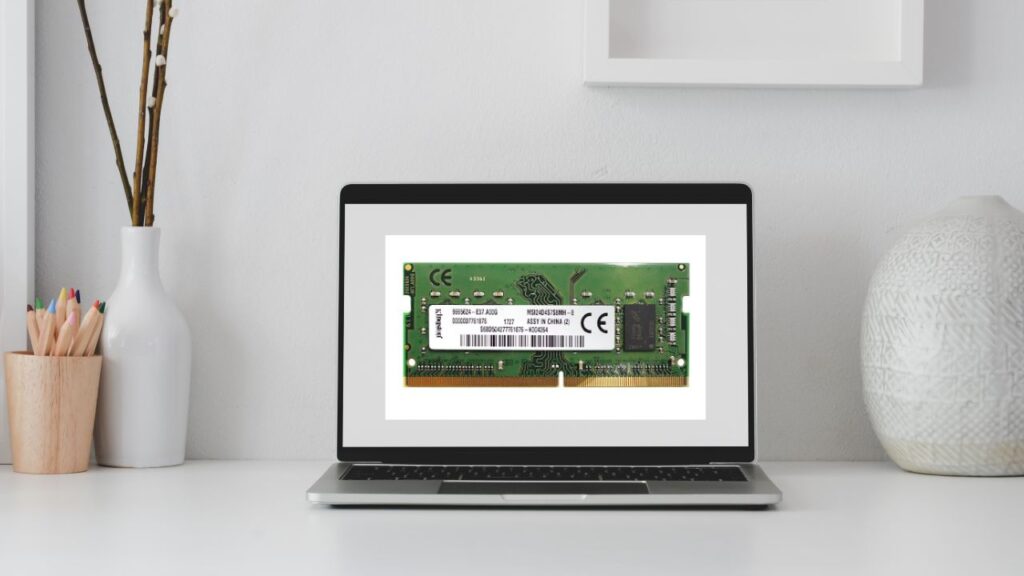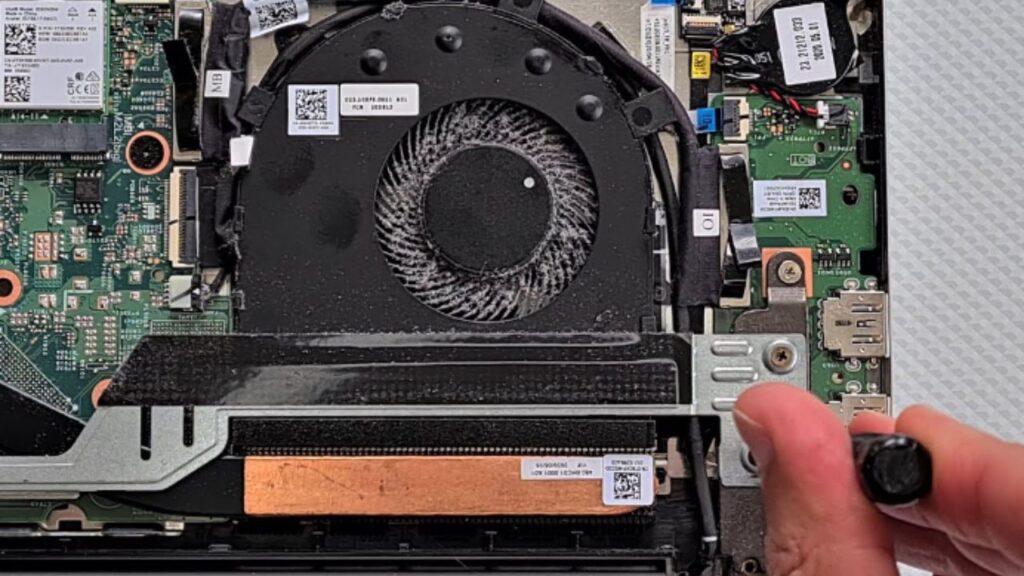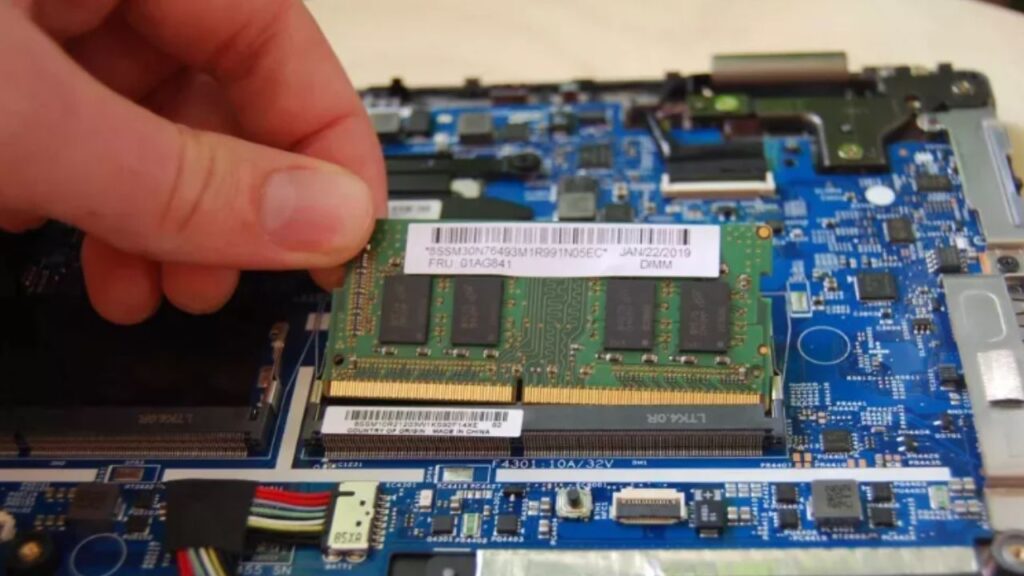Ever wondered how long RAM lasts? Let’s increase RAM on laptops. In today’s fast-paced digital world, where laptops have become indispensable tools for work and leisure, knowing the lifespan of the various components is vital.
RAM (Random Access Memory) plays a crucial role in a laptop’s performance, allowing it to swiftly execute tasks and switch between applications.
This article aims to delve into the longevity of RAM in laptops, shedding light on factors that impact their lifespan and offering valuable insights for users.
Understanding RAM
The typical lifespan of RAM generally spans between 5 to 10 years, and in some cases, it can even endure for up to 20 years, depending on your specific usage patterns.
Unlike certain delicate components, RAM is engineered to be highly durable, outlasting many other parts in a PC.
It’s worth noting that manufacturers often offer a lifetime warranty exclusively for RAM, underscoring its robust reliability.
What is RAM?
RAM, also known as volatile memory, is a critical hardware component in a laptop that provides temporary storage for data or information actively being used by the computer’s processor.
Unlike long-term storage devices such as hard drives, RAM retains data only once the laptop is powered on.
How Does RAM Impact Laptop Performance

RAM significantly influences the speed and smoothness of a laptop’s operations.
It allows the laptop’s operating system and software to load and run efficiently by providing fast access to frequently accessed data.
With more RAM, a laptop can handle multitasking better, handle larger files, and execute memory-intensive applications with ease.
Factors Affecting RAM Lifespan
While RAM is essential to a laptop, its lifespan can vary depending on several factors.
1. Usage and Workload
The frequency and intensity with which you use your laptop can determine how long the RAM lasts.
Suppose you often engage in memory-intensive tasks such as video editing, high-end gaming, or running virtual machines.
In that case, your RAM may experience greater wear and tear than light, everyday computing.
2. Heat and Temperature Management
Heat is the enemy of electronic components, including RAM. Laptops that consistently run at high temperatures due to poor ventilation or prolonged usage may cause the RAM to degrade faster. Overheating can lead to reduced reliability and potential data loss.
3. Electrical Surges and Power Fluctuations
Unstable power supply or sudden surges can damage various laptop components, including RAM.
It is essential to use surge protectors and battery backups to safeguard your laptop from voltage fluctuations, which can significantly extend the lifespan of the RAM.
Signs of Aging RAM
Like any other hardware component, RAM gradually wears out over time.
Awareness of the signs of aging RAM can help you proactively address potential issues.
1. Sluggish Performance
One of the initial telltale signs of aging RAM is a decrease in overall system performance.
Programs that used to run smoothly now take longer to load, and multitasking becomes sluggish.
If you notice a persistent slowdown in your laptop’s performance, RAM issues could be the culprit.
2. Frequent Application Crashes
As RAM deteriorates, it may need help to store and retrieve data efficiently. This can lead to frequent crashes or freezes, especially when running memory-intensive applications.
If you consistently experience application crashes or see error messages relating to insufficient memory, it could indicate RAM problems.
3. Blue Screen of Death (BSOD)
A sudden appearance of the infamous Blue Screen of Death, accompanied by error messages indicating memory-related issues, might indicate RAM problems.
While various factors can cause BSOD, faulty RAM is one of the potential culprits.
Extending the Lifespan of RAM
While RAM does have a finite lifespan, there are measures you can take to maximize its longevity.
1. Regularly Clean and Dust your Laptop

Proper maintenance, such as regularly cleaning the laptop’s internals, including the RAM modules, can prevent dust accumulation.
Dust can act as an insulator, trapping heat and potentially impacting the RAM’s performance and lifespan.
2. Optimize Software and Disable Unnecessary Background Processes
Closing unnecessary applications and disabling background processes can reduce the strain on your RAM.
You can minimize wear and tear on this vital component by allocating resources more efficiently.
3. Use Reliable Power Sources
Using a stable power source and protecting your laptop from sudden power surges can prevent potential damage to the RAM.
Investing in quality surge protectors and uninterruptible power supplies (UPS) can safeguard your laptop’s components, including RAM.
FAQ:
What is the lifespan of 8GB RAM?
An 8GB RAM configuration is expected to remain relevant for approximately six years. Remarkably, even a 2007 laptop with just 3GB of RAM can still perform web browsing and basic tasks.
Is 16GB of RAM Sufficient for a Laptop?
For students who frequently handle substantial data loads, a minimum of 16GB of RAM is advisable. 8GB of RAM suffices for routine productivity tasks in a professional work setting. However, if your work involves intensive data processing, it’s prudent to consider upgrading to 16GB or beyond. In gaming, where titles demand increasingly higher system resources, a sweet spot lies between 16GB and 32GB of RAM for an optimal gaming experience.
Conclusion:
RAM is an indispensable component for laptops, greatly influencing their performance and multitasking capabilities.
While the exact lifespan of RAM can vary due to usage patterns and external factors, being aware of signs of aging and adopting preventive measures can prolong its functionality.
By properly maintaining your laptop and optimizing software, you can maximize the lifespan of your laptop’s RAM, ensuring smooth and efficient computing for years to come. Comment here.

